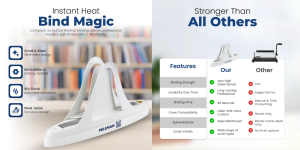As the landscape of work continues to evolve, freelance accounting has emerged as a lucrative and flexible career path for financial professionals. With businesses of all sizes seeking specialized financial expertise, freelancers in this domain are positioned to thrive. In this article, we delve into the intricacies of freelance accounting, exploring essential skills, tools, and strategies for success. We also examine the benefits and challenges, providing a roadmap for those looking to excel in this dynamic field.
Understanding the Role of a Freelance Accountant
A freelance accountant is a self-employed professional who provides accounting services to various clients. These services can range from bookkeeping and tax preparation to financial consulting and auditing. Unlike traditional accountants employed by a single firm, freelance accountants have the flexibility to work with multiple clients, offering tailored services based on the specific needs of each business.

Core Responsibilities and Services Offered
Freelance accountants can offer a wide array of services, including:
- Bookkeeping and Financial Record Maintenance: Maintaining accurate and up-to-date financial records is crucial for any business. Freelance accountants ensure that all financial transactions are properly recorded, categorized, and reconciled.
- Tax Preparation and Planning: Tax compliance is a significant aspect of accounting. Freelance accountants assist clients with tax preparation, filing, and planning strategies to minimize tax liabilities.
- Financial Analysis and Reporting: Providing insights into a company’s financial health is another key role. This includes creating financial reports, analyzing performance, and advising on financial decisions.
- Budgeting and Forecasting: Freelance accountants help businesses create realistic budgets and financial forecasts, aiding in long-term planning and resource allocation.
- Audit and Compliance Services: Ensuring compliance with financial regulations and standards is essential. Freelance accountants may conduct internal audits and offer advice on regulatory adherence.
Essential Skills and Qualifications
To succeed in freelance accounting, professionals must possess a unique blend of technical expertise, soft skills, and business acumen.
Technical Skills
- Proficiency in Accounting Software: Familiarity with software like QuickBooks, Xero, and FreshBooks is essential. These tools streamline accounting processes, making it easier to manage multiple clients.
- Knowledge of Tax Laws and Regulations: Staying updated on the latest tax laws and regulations is critical for accurate tax preparation and planning.
- Analytical Skills: The ability to analyze financial data and provide actionable insights is a key differentiator for freelance accountants.
Soft Skills
- Communication: Effective communication is vital, as freelance accountants must explain complex financial concepts to clients who may not have a financial background.
- Time Management: Juggling multiple clients and deadlines requires exceptional organizational and time management skills.
- Problem-Solving: Freelance accountants must be adept at identifying and resolving financial issues.
The Benefits of Pursuing a Career in Freelance Accounting
Choosing a career in freelance accounting offers numerous advantages, including:
Flexibility and Autonomy
Freelance accountants have the freedom to choose their clients and set their own schedules. This autonomy allows for a better work-life balance and the opportunity to pursue other interests.
Diverse Clientele and Experiences
Working with a variety of clients from different industries provides valuable experience and broadens one’s skill set. This diversity can lead to more fulfilling work and greater professional growth.
Potential for Higher Earnings
Freelance accountants can potentially earn more than their traditionally employed counterparts. By setting their rates and taking on multiple clients, they have greater control over their income.
Challenges in Freelance Accounting and How to Overcome Them
While the benefits of freelance accounting are substantial, the career also comes with its challenges. Understanding these obstacles and developing strategies to overcome them is essential for long-term success.
Finding and Retaining Clients
One of the biggest challenges for freelance accountants is building and maintaining a steady client base. Networking, leveraging online platforms, and providing exceptional service can help in acquiring and retaining clients.
Managing Irregular Income
Unlike a salaried position, freelance work often comes with fluctuating income. To manage this, freelancers should budget carefully, maintain an emergency fund, and diversify their client base.
Keeping Up with Industry Changes
The accounting industry is constantly evolving with new regulations, technologies, and best practices. Continuous learning and professional development are crucial to staying relevant and competitive.
Essential Tools and Resources for Freelance Accountants
Utilizing the right tools and resources can significantly enhance the efficiency and effectiveness of a freelance accountant’s work.
Accounting Software
Investing in robust accounting software is essential. Options like QuickBooks, Xero, and FreshBooks offer comprehensive features for bookkeeping, invoicing, and financial reporting.
Time Tracking and Billing Tools
Tools like Toggl and Harvest help freelance accountants track billable hours and manage invoicing, ensuring accurate billing for services rendered.
Professional Networking and Marketing Platforms
Building a strong professional network is crucial. Platforms like LinkedIn and Upwork can be valuable for networking and marketing services to potential clients.
Building a Successful Freelance Accounting Business
Establishing a successful freelance accounting business requires careful planning and strategic execution. Here are key steps to consider:
Defining Your Niche
Specializing in a particular niche, such as small business accounting or non-profit organizations, can help you stand out in a competitive market. Define your target audience and tailor your services to meet their specific needs.
Setting Competitive Rates
Determining your rates can be challenging. Research industry standards, consider your level of expertise, and factor in the scope of services offered. Offering package deals or discounts for long-term contracts can also attract clients.
Developing a Strong Online Presence
A professional website and active presence on social media platforms are crucial for marketing your services. Showcase your expertise through blog posts, case studies, and client testimonials.
Prioritizing Client Relationships
Building strong relationships with clients is key to long-term success. Providing excellent service, being responsive, and communicating clearly will help build trust and encourage repeat business.

Conclusion
In conclusion, freelance accounting is a rewarding career path offering flexibility, diverse experiences, and the potential for high earnings. While the field presents challenges, with the right skills, tools, and strategies, freelance accountants can build successful and fulfilling careers. Staying adaptable and continuously seeking growth opportunities will ensure longevity and success in this dynamic industry.







